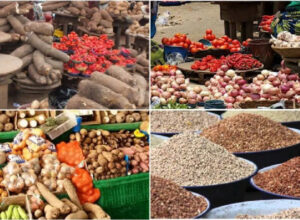
Edward Kareweh, the former General Secretary of the General Agricultural Workers Union (GAWU), has called for coordinated policy efforts among key ministries to address the structural challenges facing Ghana’s agricultural sector.
Kareweh emphasized the need for effective collaboration between the Ministry of Agriculture and other governmental bodies to enhance production, reduce food inflation, and tackle post-harvest losses.
According to Kareweh, the disconnect between production strategies and trade policies has hindered the growth of the sector. He highlighted the fact that increased agricultural production without a functional market often leads to a commodity surplus, which results in post-harvest losses and financial setbacks for farmers.
“Before you produce, there must be a market. Particularly if it is not only for consumption but also for trade. The lack of a functional market remains a major challenge for agricultural production in Ghana,” he stated.
Kareweh suggested that reducing imports in specific food categories, such as maize, would create market opportunities for locally produced goods. He also advocated for the establishment of processing facilities near farm gates as a practical solution to minimize losses and boost market efficiency.
The former GAWU leader acknowledged the government’s recent emphasis on agribusiness as a distinct policy focus under the Ministry of Trade and Industry. He expressed cautious optimism about this move, noting that the Ministry of Agriculture’s historical performance has been less than satisfactory despite its technical infrastructure. Kareweh argued that the Ministry of Agriculture should undergo significant restructuring to address longstanding administrative inefficiencies.
“The Ministry of Agriculture needs to be restructured. There are serious administrative and bureaucratic bottlenecks that must be addressed. It is like a leaking bucket—you must mend the leaks before pouring in more water,” he said.
He further pointed out the ministry’s failure to deliver on flagship programs such as Planting for Food and Jobs, questioning its ability to manage large-scale agribusiness initiatives effectively.
Kareweh also linked the country’s persistent food inflation to inefficiencies in the agricultural sector. Citing consistent data from the Ghana Statistical Service, he noted that food inflation is a major driver of national inflation. He stressed that reducing food inflation requires a coordinated approach involving the Ministry of Finance, Ministry of Agriculture, and Ministry of Trade to ensure that policies are synergized and targeted.
“The government must address food inflation without creating risks like post-harvest losses. This requires a collective effort to stabilize the economy and make food affordable for consumers,” he added.
Kareweh urged the government to prioritize policy alignment and foster collaboration between agriculture and trade to create a sustainable agricultural ecosystem. He called for pragmatic solutions that go beyond policy declarations, emphasizing the importance of implementation.
With the challenges of post-harvest losses, inflation, and market inefficiencies continuing to affect the sector, Kareweh’s remarks serve as a timely call to action for policymakers to adopt a holistic approach in addressing Ghana’s agricultural challenges.